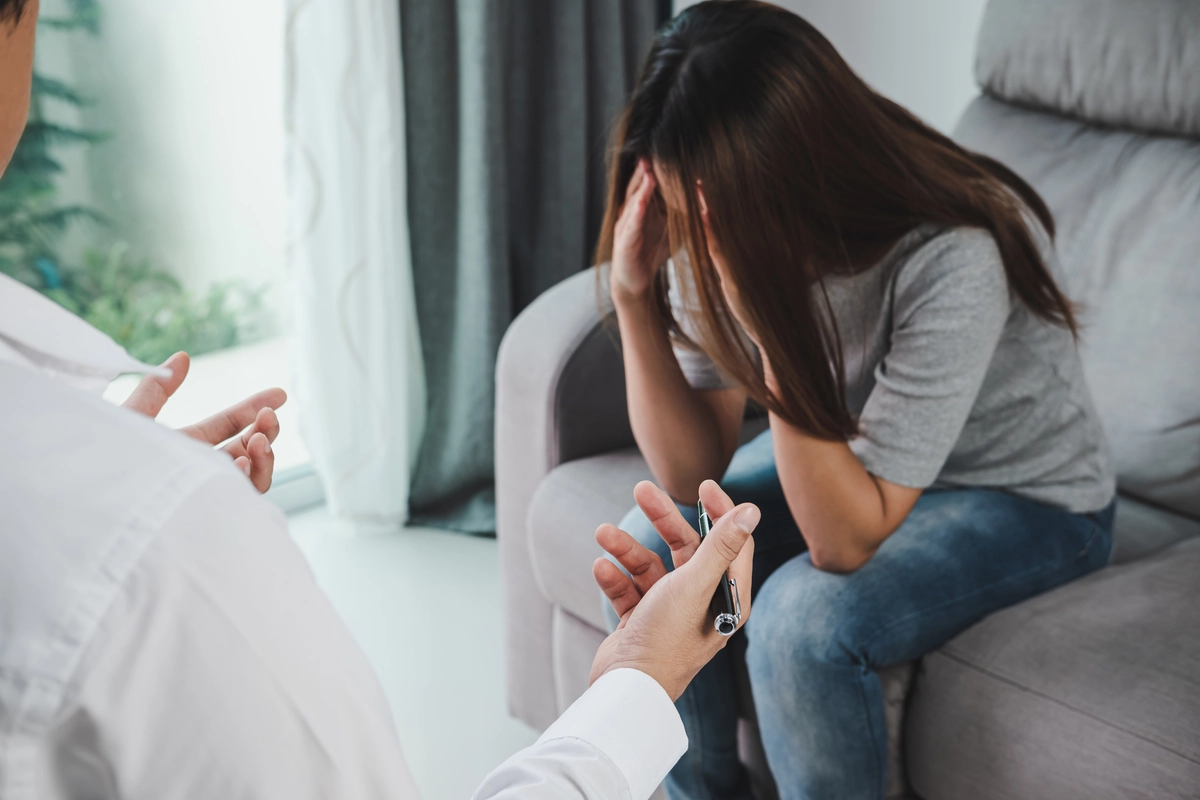24/7 Helpline:
(866) 899-111424/7 Helpline:
(866) 899-1114
Learn more about Klonopin Rehab centers in New Mexico

Other Insurance Options
Beacon

Magellan

Excellus

Health Choice

Molina Healthcare

Oxford

Access to Recovery (ATR) Voucher

Highmark

Health Partners

Regence

Providence

EmblemHealth

Holman Group

WellCare Health Plans

BlueShield

Carleon

UMR

Group Health Incorporated

Horizon Healthcare Service

Ambetter

Rehoboth McKinley Christian Healthcare – Behavioral Health
Rehoboth McKinley Christian Healthcare – Behavioral Health is a private rehab located in Gallup, New...

La Casa Community Behavioral Health
La Casa Community Behavioral Health is a private rehab located in Roswell, New Mexico. La Casa Commu...

Albuquerque Health Services NW
Albuquerque Health Services NW is a private rehab located in Albuquerque, New Mexico. Albuquerque He...

Santa Fe Recovery Center
Santa Fe Recovery Center, located in Santa Fe, New Mexico, offers alcohol and drug rehab services an...

Albuquerque Behavioral Health
Albuquerque Behavioral Health offers outpatient services for individuals with a Mental Health diagno...

New Season – Albuquerque North Treatment Center
The New Season Albuquerque North Treatment Center facility is a substance abuse rehab center in Albu...

A New Awakening – Re Cycled Man
A New Awakening Rio Rancho is an outpatient mental health and drug and alcohol addiction recovery ce...

Shadow Mountain Recovery
Shadow Mountain Recovery -- Taos Men's Detox and Residential Treatment Center is a residential drug ...

Life Healing Center
Life Healing Center specializes in mental health, trauma, and co-occurring disorders. They are locat...

Carlsbad Mental Health – Villa de Esperanza
Golden Services - Villa de Esperanza is a private rehab located in Carlsbad, NM. Golden Services - V...

Albuquerque Treatment Services
Albuquerque Treatment Services is a public rehab located in Albuquerque, New Mexico. Albuquerque Tre...

Vista Taos Renewal Center
Vista Taos Renewal Center offers a 28-day residential treatment for individuals with alcohol and/or ...

Haven Behavioral Hospital of Albuquerque
Haven Behavioral Hospital of Albuquerque is a private rehab located in Albuquerque, New Mexico. Have...

New Season – Central New Mexico Treatment Center
New Season - Central New Mexico Treatment Center, located in Albuquerque, New Mexico, provides alcoh...

Bernalillo County – Metropolitan Assessment and Treatment
Bernalillo County – Metropolitan Assessment and Treatment is a public rehab located in Albuquerque, ...

Zia Recovery Center
Zia Recovery Center is a drug and alcohol addiction recovery center in Las Cruces, New Mexico. Their...

Recovery Services of New Mexico
Recovery Services of New Mexico is an opioid addiction treatment center in Albuquerque, New Mexico. ...

Evolution Group
Evolution Group is a private rehab located in Albuquerque, New Mexico. Evolution Group specializes i...

Turning Point Recovery Center
Turning Point Recovery Center is an integrative drug and alcohol rehab in Albuquerque, New Mexico sp...

Kaseman Presbyterian Hospital – Behavioral Health Services
Kaseman Presbyterian Hospital Behavioral Health Services offers adults, children, and adolescents a ...

Sequoyah Adolescent Treatment
Sequoyah Adolescent Treatment is located in Albuquerque, New Mexico. Sequoyah Adolescent Treatment i...

PMS – Grants Family Counseling
PMS - Grants Family Counseling provides mental health and substance abuse services to both youth and...

New Mexico Rehabilitation Center
New Mexico Rehabilitation Center is a public rehab located in Roswell, New Mexico. New Mexico Rehabi...

New Mexico Treatment Services
New Mexico Treatment Services is a private rehab located in Santa Fe, New Mexico. New Mexico Treatme...

New Mexico Treatment Services
New Mexico Treatment Services - Farmington is a private rehab located in Farmington, NM. New Mexico ...

University of New Mexico Childrens – Psychiatric Center
University of New Mexico Childrens – Psychiatric Center is a public rehab located in Albuquerque, Ne...

PMS – Socorro Mental Health
PMS - Socorro Mental Health provides mental health and substance abuse services to both youth and ad...

Paragon Rehabiliation
Paragon Rehabiliation is a private rehab located in Albuquerque, New Mexico. Paragon Rehabiliation s...

Navajo Regional – Behavioral Health
Navajo Regional – Behavioral Health is a public rehab located in Shiprock, New Mexico. Navajo Region...

Mental Health Resources
Mental Health Resources - West 21st Street offers outpatient treatment for individuals with alcohol ...

A New Day
A New Day is a private rehab located in Albuquerque, New Mexico. A New Day specializes in the treatm...

Guidance Center of Lea County
Guidance Center of Lea County is a private rehab located in Hobbs, New Mexico. Guidance Center of Le...

Desert View Family Counseling Services
Desert View Family Counseling Services is a private rehab located in Farmington, New Mexico. Desert ...

Family and Youth Counseling Services
Family and Youth Counseling Services is a private rehab located in Las Cruces, New Mexico. Family an...

HopeWorks
St. Martin's Hospitality Center is located in Albuquerque, New Mexico. St. Martin's Hospitality Cent...

Yucca Lodge Chemical Dependency Treatment Center
Yucca Lodge Chemical Dependency Treatment Center offers inpatient treatment for individuals with alc...

ALT Recovery Group
ALT Recovery Group is located in Las Cruces, New Mexico. ALT Recovery Group provides medication assi...

Duke City Recovery Toolbox
Duke City Recovery Toolbox is a private rehab located in Albuquerque, New Mexico. Duke City Recovery...

Clovis Counseling Center
Clovis Counseling Center is a rehab center located in Clovis, NM. Clovis Counseling Center specializ...

ViewPoint Rehabilitation Center
ViewPoint Rehabilitation Center is a private rehab located in Rio Rancho, New Mexico. ViewPoint Reha...

New Mexico Behavioral Health
New Mexico Behavioral Health is a public rehab located in Las Vegas, New Mexico. New Mexico Behavior...

Open Skies Healthcare
Open Skies Healthcare provides behavioral health services to children and adults in need. They offer...

Sierra Vista Hospital – Counseling
Sierra Vista Hospital – Counseling is a private rehab located in Truth Or Consequences, New Mexico. ...

Presbyterian Medical Services
Presbyterian Medical Services is a private rehab located in Espanola, New Mexico. Presbyterian Medic...

Recovery Service of New Mexico
Recovery Service of New Mexico is a private rehab located in Belen, New Mexico. Recovery Service of ...

Rio Grande Counseling and Guidance Services
Rio Grande Counseling and Guidance Services is a private counseling clinic located in Albuquerque, N...

San Juan Regional Medical Center – Behavioral Health
San Juan Regional Medical Center – Behavioral Health is a private rehab located in Farmington, New M...

University Park Detox and Assessment Center
University Park Detox and Assessment Center offers distinct and highly individualized tracks like me...

Behavior Therapy Associates
Behavior Therapy Associates is a private rehab located in Albuquerque, New Mexico. Behavior Therapy ...

CFAR – Center for Family and Adolescent Research
Center for Family and Adolescent Research (CFAR) provides outpatient services for adolescents ages 1...

Jemez Behavioral Health
Jemez Behavioral Health is a private rehab located in Jemez Pueblo, New Mexico. Jemez Behavioral Hea...

Peak Behavioral Health Services
Peak Behavioral Health Services, located in Santa Teresa, New Mexico, offers alcohol and drug rehab ...

Recovery Services of New Mexico Isleta
Recovery Services of New Mexico Isleta is a private rehab located in Albuquerque, New Mexico. Recove...

Crossroads for Women
Crossroads is a non-profit rehab located in Albuquerque, NM. Crossroads provides housing and therape...

Recovery Services of Southern New Mexico
Recovery Services of Southern New Mexico is a private rehab located in Roswell, New Mexico. Recovery...

New Mexico VA Health Care System – Espanola CBOC
New Mexico VA Health Care System - Espanola Community Based Outpatient Clinic is a public rehab loca...

Shadow Mountain Recovery – Santa Fe
Shadow Mountain Recovery – Santa Fe is a private rehab located in Santa Fe, New Mexico. Shadow Mount...

Behavioral Medicine Associates
Behavioral Medicine Associates is a private outpatient mental health group located in Roswell, NM. B...

U Turn For Christ
U-Turn For Christ is a faith-based drug and alcohol addiction treatment program in Albuquerque, NM. ...

Shadow Mountain Recovery – Albuquerque Recovery Center
Shadow Mountain Recovery – Albuquerque Recovery Center is a private rehab located in Albuquerque, Ne...

Open Skies Healthcare
Open Skies Healthcare provides behavioral health services to children and adults in need. They offer...

Open Skies Healthcare
Open Skies Healthcare provides behavioral health services to children and adults in need. They offer...

New Mexico Solutions – Coors Boulevard
New Mexico Solutions - Coors Boulevard’ specialized staff offers a variety of counseling services fo...

The Life Link
The Life Link is located in Santa Fe, New Mexico. The Life Link's programs focus primarily on housin...

New Sunrise Regional Treatment Center – NSRTC
New Sunrise Regional Treatment Center (NSRTC) is a federal Indian Health Service operated residentia...

Oxford House Snowheights
Oxford House Snowheights is a non-profit rehab located in Albuquerque, NM. Oxford House Snowheights ...










































































































































































































































































































































































































































































































































































































































































































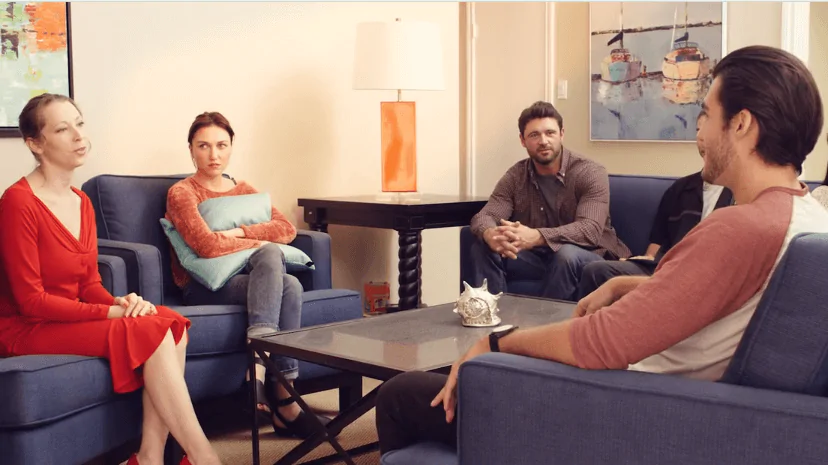
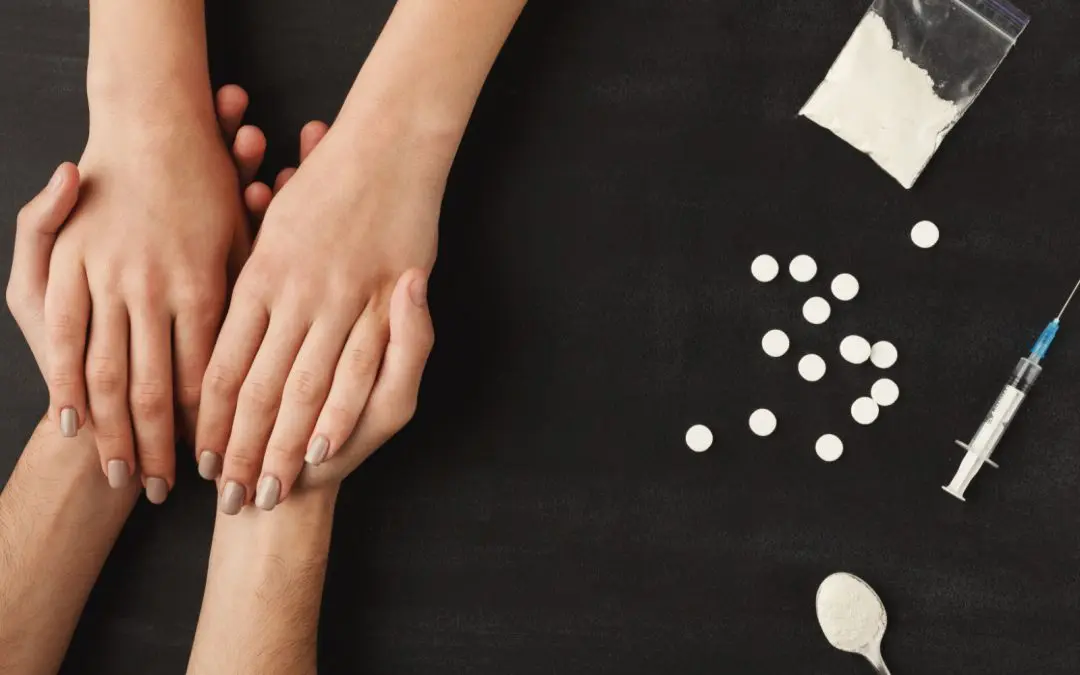
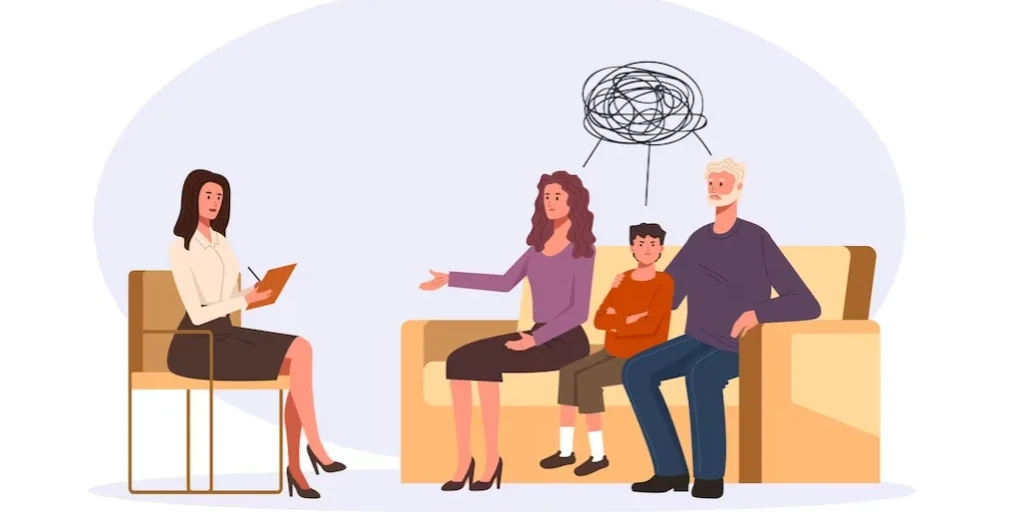



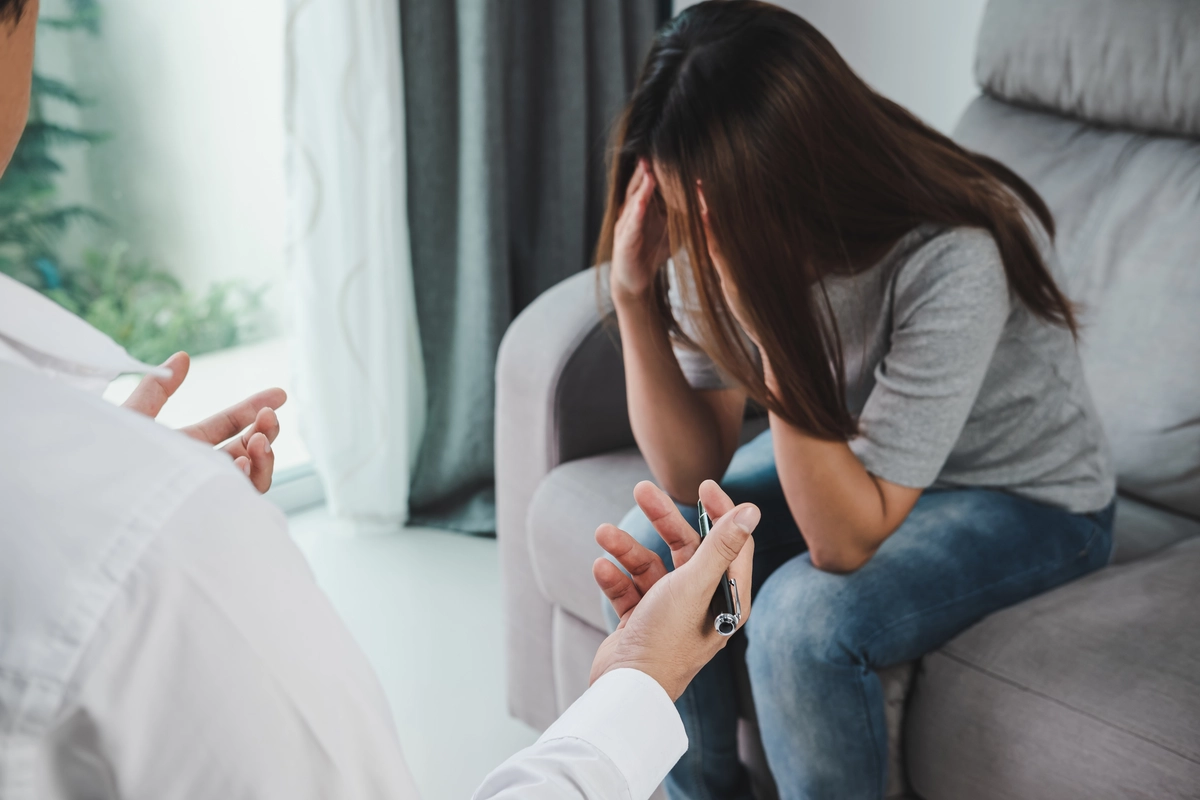





































































































































































































New Mexico Wellness Treatment Center
New Mexico Wellness Treatment Center is a private rehab located in Rio Rancho, New Mexico. New Mexic...

Courageous Transformations
Courageous Transformations is an accredited, substance abuse rehab center in Albuquerque, NM for ind...

Hoy Recovery Program
Hoy Recovery Program is an accredited alcohol and drug rehab center in Espanola, NM for individuals ...

Bicycle Health – New Mexico
Bicycle Health - New Mexico is an online Medication Assisted Treatment Program. Bicycle Health - New...

State of the Heart Recovery
State of the Heart Recovery is a non-profit rehab located in Albuquerque, New Mexico. State of the H...

Agave Health
Agave Health is a private rehab located in Rio Rancho, New Mexico. Agave Health specializes in the t...

Na Nizhoozhi Center – A Bridge To Recovery
Na Nizhoozhi Center – A Bridge To Recovery is a non-profit rehab located in Gallup, New Mexico. Na N...

ADAPT and Recovery
ADAPT and Recovery is a private rehab located in Los Alamos, New Mexico. ADAPT and Recovery speciali...

IHS Recovery
IHS Recovery is a private rehab located in Santa Fe, New Mexico. IHS Recovery specializes in the tre...

Alcoholics Anonymous
Alcoholics Anonymous is located in Albuquerque, New Mexico. Alcoholics Anonymous is a fellowship of ...

Crossroads – Maya’s Place
Crossroads – Maya’s Place is a private rehab located in Albuquerque, New Mexico. Crossroads – Maya’s...

Pueblo of Sandia Substance Abuse Program
Pueblo of Sandia Substance Abuse Program is a public rehab located in Bernalillo, New Mexico. Pueblo...

Focus on Recovery
Focus on Recovery is a private rehab located in Santa Fe, New Mexico. Focus on Recovery specializes ...

Valle del Sol of New Mexico
Valle del Sol of New Mexico is a non profit rehab located in Moriarty, NM. Valle del Sol of New Mexi...

New Horizon Counseling
New Horizon Counseling is a private rehab located in Albuquerque, New Mexico. New Horizon Counseling...

Tri County Community Services – Raton Mental Health Services
Tri County Community Services – Raton Mental Health Services is a private rehab located in Raton, Ne...

Recovery Unlimited
Recovery Unlimited is a private rehab located in Albuquerque, New Mexico. Recovery Unlimited special...

The Salvation Army – Adult Rehabilitation Program
The Salvation Army–Adult Rehabilitation Program is a comprehensive addiction treatment center for ad...

Thoreau Behavioral Health Services
Thoreau Behavioral Health Services is a public rehab located in Thoreau, New Mexico. Thoreau Behavio...

Citizens Council On Alcoholism
Citizens Council On Alcoholism is a private rehab located in Albuquerque, New Mexico. Citizens Counc...

Albuquerque Day Reporting Center
Albuquerque Day Reporting Center is a private rehab located in Albuquerque, New Mexico. Albuquerque ...

Focused Recovery
Focused Recovery is a private rehab located in Santa Fe, New Mexico. Focused Recovery specializes in...

Responsible Effort
Responsible Effort is a private rehab located in Santa Fe, New Mexico. Responsible Effort specialize...

Rio Grande Intensive Outpatient Treatment
Rio Grande Intensive Outpatient Treatment is a private rehab located in Taos, New Mexico. Rio Grande...

Rio Grande – Alcoholism Treatment Program
Rio Grande – Alcoholism Treatment Program is a private rehab located in Las Vegas, New Mexico. Rio G...

Five Sandoval Indian Pueblos Behavioral Health
Five Sandoval Indian Pueblos Behavioral Health is a public rehab located in Bernalillo, New Mexico. ...

Alliance of Gallup
Alliance of Gallup is a private rehab located in Gallup, New Mexico. Alliance of Gallup specializes ...

Desert Club
Desert Club is a non-profit rehab located in Albuquerque, New Mexico. Desert Club specializes in the...

Crossroads
Crossroads is a private rehab located in Carlsbad, New Mexico. Crossroads specializes in the treatme...

Center for Behavioral Health
Albuquerque Health Services is a private rehab located in Albuquerque, NM. Albuquerque Health Servic...

La Familia – Namaste – Taos
La Familia - Namaste is a non profit rehab located in Taos, NM. La Familia - Namaste specializes in ...

Amity Foundation – Almas de Amistad
Amity Foundation – Almas de Amistad is a private rehab located in Albuquerque, New Mexico. Amity Fou...

Dry Harbor Club
Dry Harbor Club is a private rehab located in Roswell, New Mexico. Dry Harbor Club specializes in th...

Lifestyle Recovery
Lifestyle Recovery is a private rehab located in Albuquerque, New Mexico. Lifestyle Recovery special...

Santa Clara Pueblo Behavioral Health
Santa Clara Pueblo Behavioral Health is a public rehab located in Espanola, New Mexico. Santa Clara ...

Las Cumbres Community Services
Las Cumbres Community Services is a private rehab located in Espanola, New Mexico. Las Cumbres Commu...

Mental Health Resources
Mental Health Resources - South Monroe Street offers outpatient treatment for individuals with alcoh...

Sangre De Cristo Community Health
Sangre De Cristo Community Health is a private rehab located in Santa Fe, New Mexico. Sangre De Cris...

Youth Development – Behavioral Health Component
Youth Development – Behavioral Health Component is a private rehab located in Albuquerque, New Mexic...

Height’s Club
Height’s Club is a non-profit rehab located in Albuquerque, New Mexico. Height’s Club specializes in...

Las Cumbres Community Services – Infant Program
Las Cumbres Community Services – Infant Program is a private rehab located in Santa Fe, New Mexico. ...

Youth Development – Carenas Drive Southeast
Youth Development – Carenas Drive Southeast is a private rehab located in Albuquerque, New Mexico. Y...

Youth Development – Easterday Notheast
Youth Development – Easterday Notheast is a private rehab located in Albuquerque, New Mexico. Youth ...

AA – Alcoholicos Anonimos – Grupo Tercera Tradicion
AA - Alcoholicos Anonimos - Grupo Tercera Tradicion is located in Albuquerque, New Mexico. AA - Alco...

New Mexico Treatment Services
New Mexico Treatment Services is a private rehab located in Espanola, New Mexico. New Mexico Treatme...

Three Quarter Transitional Center
Three Quarter Transitional Center is a private rehab located in Gallup, New Mexico. Three Quarter Tr...

New Mexico Behavioral Health
New Mexico Behavioral Health is a public rehab located in Mora, New Mexico. New Mexico Behavioral He...

AA – Alcoholics Anonymous
AA – Alcoholics Anonymous is a non-profit rehab located in Las Vegas, New Mexico. AA – Alcoholics An...

Los Alamos Family Council
Los Alamos Family Council is a non-profit rehab located in Los Alamos, New Mexico. Los Alamos Family...

AA – Alcoholics Anonymous
AA – Alcoholics Anonymous is a non-profit rehab located in Carlsbad, New Mexico. AA – Alcoholics Ano...

Treatment Consultants
Treatment Consultants offers outpatient treatment for individuals with alcohol and/or substance addi...

Central New Mexico Treatment
Central New Mexico Treatment is a private rehab located in Albuquerque, New Mexico. Central New Mexi...

AA – Alcoholics Anonymous – Isleta Club
Alcoholics Anonymous (AA) - Isleta Club is located in Albuquerque , New Mexico. Alcoholics Anonymous...

Friendship Club
Friendship Club is a non-profit rehab located in Santa Fe, New Mexico. Friendship Club specializes i...

AA – Alcoholicos Anonimos – Oficina Intergrupal Hispana
Alcoholicos Anonimos (AA) - Oficina Intergrupal Hispana is located in Albuquerque, New Mexico. Alcoh...

AA – Alcoholics Anonymous – Central Office
Alcoholics Anonymous (AA) - Central Office is located in Santa Fe, New Mexico. Alcoholics Anonymous ...

AA – Alcoholics Anonymous – Friendship Club
Alcoholics Anonymous (AA) - Friendship Club is located in Santa Fe, New Mexico. Alcoholics Anonymous...

Next Step Club
Next Step Club is a private rehab located in Albuquerque, New Mexico. Next Step Club specializes in ...

Taos Detox
Taos Detox is a private rehab located in Taos, New Mexico. Taos Detox specializes in the treatment o...

Santa Fe Recovery Center
Sante Fe Recovery Center is an alcohol and drug addiction treatment center in Sante Fe, New Mexico. ...

Tri County Community Services
Tri County Community Services is a private rehab located in Taos, New Mexico. Tri County Community S...

La Familia – Namaste – Albuquerque
La Familia – Namaste – Albuquerque is a private rehab located in Albuquerque, New Mexico. La Familia...

Ayudantes Espanola Northern Clinic
Ayudantes Espanola Northern Clinic is a private rehab located in Espanola, New Mexico. Ayudantes Esp...

Navajo Nation DBHS Gallup Outpatient Treatment Center
Navajo Nation DBHS Gallup Outpatient Treatment Center is a public rehab located in Gallup, New Mexic...

Serenity Club
Serenity Club is a non-profit rehab located in Roswell, New Mexico. Serenity Club specializes in the...

CHRISTUS St. Vincent – Behavioral Health Services
CHRISTUS St. Vincent – Behavioral Health Services is a non-profit rehab located in Santa Fe, New Mex...

Tri County Community Services
Tri County Community Services is a private rehab located in Clayton, New Mexico. Tri County Communit...

A New Awakening
A New Awakening is a drug and alcohol detox center that provides substance abuse treatment located i...

Human Resources Center
Human Resources Center is a private rehab located in Espanola, New Mexico. Human Resources Center sp...

Cigna Behavioral Health
Cigna Behavioral Health is a private rehab located in Albuquerque, New Mexico. Cigna Behavioral Heal...

PMS – Totah Behavioral Health Authority
PMS - Totah Behavioral Health Authority, located in Farmington, New Mexico, provides behavioral heal...

Crossroads for Women – Hope House
Crossroads for Women - Hope House is a transitional house for women in recovery from substance abuse...

Pathways
Pathways is a private rehab located in Albuquerque, New Mexico. Pathways specializes in the treatmen...

Alianza of New Mexico
Alianza of New Mexico is a non-profit rehab located in Roswell, New Mexico. Alianza of New Mexico sp...

Taos – Community Services
Taos – Community Services is a private rehab located in Clayton, New Mexico. Taos – Community Servic...

New Mexico Monitored Treatment Program (MTP)
New Mexico Monitored Treatment Program (MTP) is a private rehab located in Albuquerque, New Mexico. ...

Life Skills Learning Center
Life Skills Learning Center is a private rehab located in Clovis, New Mexico. Life Skills Learning C...

ESH Recovery Home
ESH Recovery Home is a non-profit rehab located in Albuquerque, New Mexico. ESH Recovery Home specia...

Tri County Community Services – Detoxification Center
Tri County Community Services – Detoxification Center is a private rehab located in Taos, New Mexico...

AA – Alcoholics Anonymous
AA – Alcoholics Anonymous is a non-profit rehab located in Clovis, New Mexico. AA – Alcoholics Anony...

Eight Northern Indian Pueblos Council – New Moon Lodge
Eight Northern Indian Pueblos Council – New Moon Lodge is a public rehab located in Ohkay Owingeh, N...

Albuquerque Behavioral Health
Albuquerque Behavioral Health offers outpatient services for individuals with a Mental Health diagno...

AA – Alcoholics Anonymous – Wings of the Storm
Alcoholics Anonymous (AA) - Wings of the Storm is located in Gallup, New Mexico. Alcoholics Anonymou...

Lighthouse Counseling
Lighthouse Counseling is a private rehab located in Albuquerque, New Mexico. Lighthouse Counseling s...

Mescalero Tribal Human Services
MTHS - Four Directions Treatment and Recovery Center is a public rehab located in Mescalero, NM. MTH...

Life Transition Therapy
Life Transition Therapy is a private rehab located in Santa Fe, NM. Life Transition Therapy speciali...

The Right Step of Santa Fe
The Right Step of Santa Fe is a private rehab located in Santa Fe, New Mexico. The Right Step of San...

Region 2 Behavioral Health Providers
Region 2 Behavioral Health Providers is a private rehab located in Santa Fe, New Mexico. Region 2 Be...

The Gadara House Sober Living
The Gadara House Sober Living is a private rehab located in Alamogordo, New Mexico. The Gadara House...

Al Anon
Al Anon is a non-profit rehab located in Albuquerque, New Mexico. Al Anon specializes in the treatme...

La Familia – Namaste – Farmington
La Familia – Namaste – Farmington is a private rehab located in Farmington, New Mexico. La Familia –...

Nava Treatment Center
Nava Treatment Center is a private rehab located in Las Cruces, New Mexico. Nava Treatment Center sp...

Nambe Pueblo
Nambe Pueblo is a public rehab located in Santa Fe, New Mexico. Nambe Pueblo specializes in the trea...

Tri County Community Services – Sipapu
Tri County Community Services – Sipapu is a private rehab located in Taos, New Mexico. Tri County Co...

AA – Alcoholics Anonymous – Foothills Group
Alcoholics Anonymous (AA) - Foothills Group is located in Albuquerque, New Mexico. Alcoholics Anonym...

Four Winds Recovery Center
Cenikor is a CARF accredited drug and alcohol addiction treatment center based in Farmington, NM. It...

Total Health Recovery System
Total Health Recovery System is a private rehab located in Santa Fe, New Mexico. Total Health Recove...

Relevancy
Relevancy is a private rehab located in Albuquerque, New Mexico. Relevancy specializes in the treatm...

Zia Pueblo Substance Abuse
Zia Pueblo Substance Abuse is a private rehab located in San Ysidro, New Mexico. Zia Pueblo Substanc...

Kewa Family Wellness Center
Kewa Family Wellness Center is a public rehab located in Kewa Pueblo, New Mexico. Kewa Family Wellne...

Pueblo of Acoma
Pueblo of Acoma is a public rehab located in Pueblo Of Acoma, New Mexico. Pueblo of Acoma specialize...

Crossroads for Women – The Pavillons
Crossroads for Women -- The Pavillions is a transitional housing unit for women recovering from alco...

Millennium Treatment Services
Millennium Treatment Services is a private rehab located in Santa Fe, New Mexico. Millennium Treatme...

Mesa Club
Mesa Club is a non-profit rehab located in Rio Rancho, New Mexico. Mesa Club specializes in the trea...

New Mexico Behavioral Health
New Mexico Behavioral Health is a public rehab located in Santa Rosa, New Mexico. New Mexico Behavio...

Age to Age Counseling PC
Age to Age Counseling PC is a private rehab located in Albuquerque, New Mexico. Age to Age Counselin...

Agave Health
Agave Health is a private rehab located in Taos, New Mexico. Agave Health specializes in the treatme...

Rescare
Rescare is a private rehab located in Roswell, New Mexico. Rescare specializes in the treatment of a...

Therapeutic Living Services – TLS
Therapeutic Living Services - TLS is a non-profit rehab located in Albuquerque, NM. Therapeutic Livi...

Vista Taos – Renewal Center Casa Feliz
Vista Taos – Renewal Center Casa Feliz is a private rehab located in Taos, New Mexico. Vista Taos – ...

The Dream Zone
The Dream Zone is a private rehab located in Taos, New Mexico. The Dream Zone specializes in the tre...

Age to Age Counseling
Age to Age Counseling is a private rehab located in Albuquerque, New Mexico. Age to Age Counseling s...

Adult and Teen Challenge of New Mexico
Adult and Teen Challenge of New Mexico is a non-profit rehab located in Albuquerque, New Mexico. Adu...

Perfectly Imperfect NM
Perfectly Imperfect NM is a private rehab located in Albuquerque, New Mexico. Perfectly Imperfect NM...

New Mexico Corrections Department – Women’s Recovery Academy
The New Mexico Women's Recovery Academy (NMWRA), a segment of ShareNM, stands proudly in Albuquerque...

Golden Services Villa de Esperanza
Golden Services Villa de Esperanza is a private rehab located in Carlsbad, New Mexico. Golden Servic...

AA – Alcoholics Anonymous
AA – Alcoholics Anonymous is a non-profit rehab located in Taos, New Mexico. AA – Alcoholics Anonymo...

Valle del Sol of New Mexico
Valle del Sol of New Mexico is a private rehab located in Algodones, New Mexico. Valle del Sol of Ne...

AA – Alcoholics Anonymous
AA – Alcoholics Anonymous is a non-profit rehab located in Farmington, New Mexico. AA – Alcoholics A...

Trauma and Recovery Centers
Trauma and Recovery Centers is a public rehab located in El Prado, New Mexico. Trauma and Recovery C...

Colorado West Regional Mental Health Center
Colorado West Regional Mental Health Center is a private rehab located in Pecos, New Mexico. Colorad...

ACCI
ACCI is a private rehab located in Socorro, New Mexico. ACCI specializes in the treatment of Substan...

Desert Hills of New Mexico
Desert Hills of New Mexico is a private rehab located in Albuquerque, NM. Desert Hills of New Mexico...

FreshPath Ministry
FreshPath Ministry is a non-profit rehab located in Albuquerque, NM. FreshPath Ministry currently op...

Open Skies Healthcare
Open Skies Healthcare provides behavioral health services to children and adults in need. They offer...

Mental Health Resources
Mental Health Resources - East Avenue C offers outpatient treatment for individuals with alcohol and...

Circle of Life Outpatient Services
Circle of Life Outpatient Services is a private rehab located in Velarde, New Mexico. Circle of Life...

Hogar Crea Gurabo
Hogar Crea Gurabo is a private rehab located in El Prado, New Mexico. Hogar Crea Gurabo specializes ...

Challenge New Mexico
Challenge New Mexico is a private rehab located in Santa Fe, New Mexico. Challenge New Mexico specia...

White Horse Ranch – Santa Fe
White Horse Ranch – Santa Fe is a drug and alcohol rehab facility located in Santa Fe, New Mexico. T...

New Mexico Corrections Department – Men’s Recovery Academy
New Mexico Corrections Department–Men’s Recovery Program is a comprehensive drug and alcohol rehab f...

Connections
Connections is a private rehab located in Gallup, New Mexico. Connections specializes in the treatme...

Native American Pueblo – Parent Resources
Native American Pueblo – Parent Resources is a private rehab located in Albuquerque, New Mexico. Nat...

Mental Health Resources
Mental Health Resources - E. 1st offers outpatient treatment for individuals with alcohol and/or sub...

Human Resources Associates Las Vegas Community
Human Resources Associates Las Vegas Community is a private rehab located in Raton, New Mexico. Huma...

PB&J Family Services
PB&J Family Services is a non-profit rehab located in Albuquerque, NM. PB&J Family Services is desig...

Serna Solutions
Serna Solutions provides consultation and program development services in behavioral health care. Th...

















































































































































































































































































































































































































